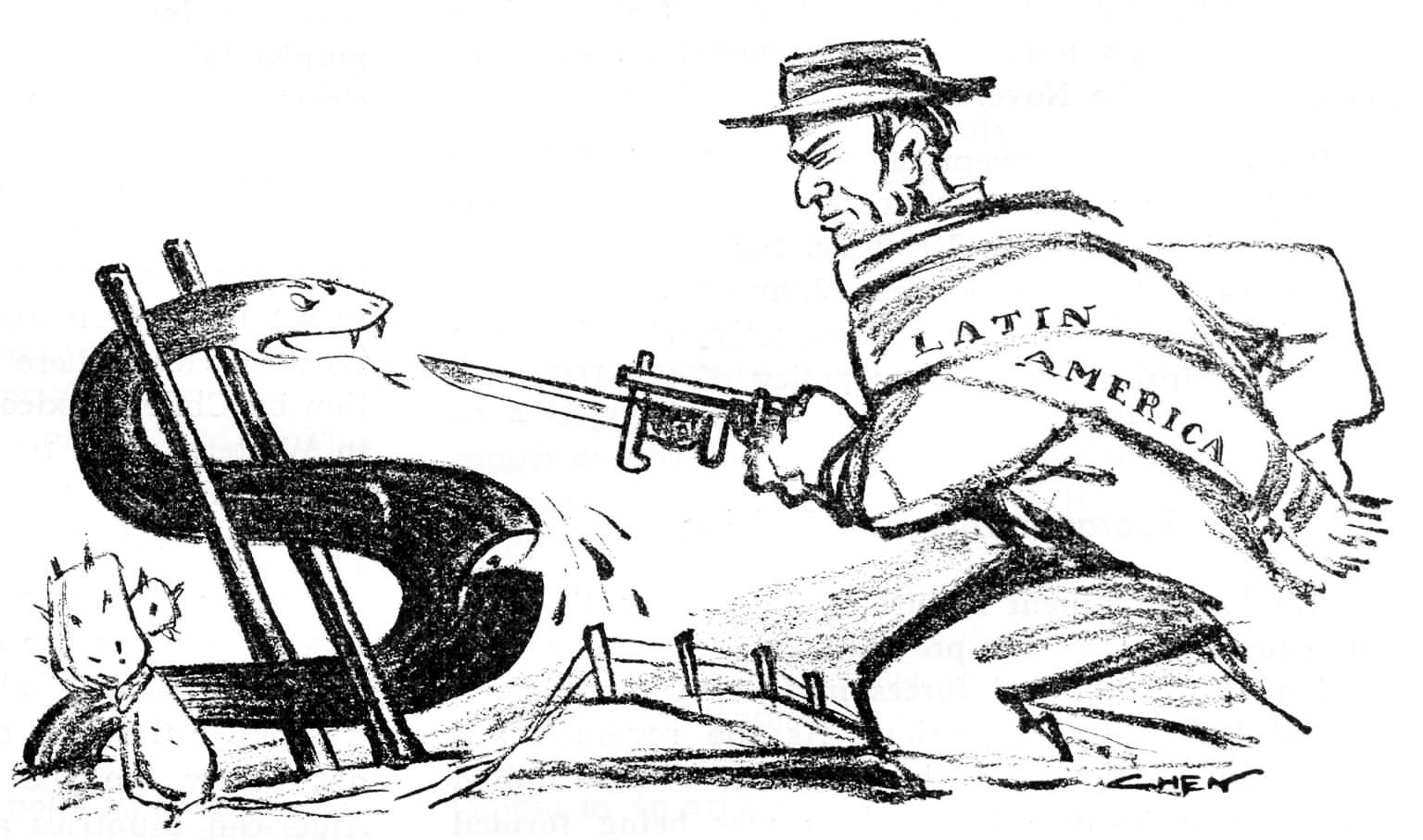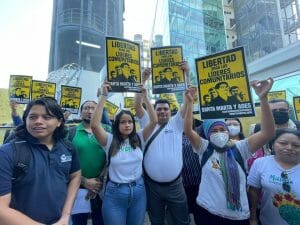NOVANEWS
Final Declaration of the 21st International Seminar: Problems of the Revolution in Latin America
The October Revolution, its Lessons for the Workers and Peoples
100 years ago the Russian proletariat marked the path which the workers and peoples of the world must take to win their emancipation. Its mark is indelible, despite the efforts of those who have tried by every means to remove from memory the day when the workers discovered the sun in the midst of the night.
The socialist revolution of 1917 was the historical response of the revolutionary proletariat to capitalism and to all societies based on regimes of exploitation and oppression, turned a social aspiration and a political prediction into reality. It was the practical confirmation of the validity of the theory of scientific socialism, Marxism, elaborated by Karl Marx and Frederick Engels, and its analysis of the inevitability of the decadence and collapse of capitalism, of the role played by the working class, and of the flourishing of a new society characterized by social equality, progress and well-being for labouring classes: socialism, the first step towards communism. October 1917 gave birth to a new era, the era of imperialism and proletarian revolutions. Therein lies its international historical character. Since then capitalism has undergone many changes; there has been a huge scientific and technological development, productive processes have evolved, but none of this has changed the essential nature of capitalism, its fundamental contradictions, the exploitation of human beings. These have, in fact, intensified, as have inter-imperialist contradictions and the contradictions between imperialism and dependent countries and nations, the same factors that were present when the Russian workers defeated first a monarchical and then a bourgeois regime.
The Bolsheviks, under the brilliant leadership of Lenin and Stalin, left a huge legacy to history. They demonstrated how the proletarian revolution is to be organized: Acting with tactical flexibility while maintaining the strategic objective; finding creative answers to the concrete social situations; relying on the initiative of the masses; fighting every manifestation of opportunism and revisionism; using all forms of organization and struggle, but understanding that it is only through the organized revolutionary violence of the masses that the power of the class enemy can be overcome. At the same time, they showed that in order to achieve this it is imperative that the proletariat be organized as an independent class in a party of a new type, the communist party. This revolution, understood as the process prior to the conquest of power and the period of the construction of socialism, gave a significant theoretical advance to Marxism, developing it according to the needs of a new era. Vladimir Ilyich Lenin raised Marxism to a new stage, to Marxism-Leninism, which then became the guide of the proletariat and the peoples in their struggle for revolution and socialism. Together with Joseph Stalin, these strategists of the revolution and the construction of socialism gave an invaluable theoretical and practical contribution to Socialism.
During the years in which Marxist-Leninist principles guided the process of construction of socialism, it demonstrated its superiority over capitalism in all fields, economic, social, scientific, cultural, and sports. Socialism demonstrated its ability to meet the needs of workers, for their conversion into a ruling class. It provided access to land to millions of people; emancipated women from patriarchal oppression and feudal and bourgeois exploitation; liberated nationalities from national oppression through the exercise of the right to self-determination; recognized the collective rights of peoples, until then nonexistent on this planet; liberated the repressed potentiality of youth. The Revolution gave access to science, letters, art, and culture, to those who formerly lived in ignorance. A planned economy established the rational use of productive forces and natural resources. It awoke an entire people that now felt themselves the creators of a new world. The Revolution made a major leap forward in the process of human emancipation.
During World War II, the glorious Red Army led by Stalin, crushed the Nazi-fascist beast, itself an expression of the most reactionary policies of the bourgeoisie. In this context, several peoples from all continents undertook the revolutionary processes of social and national liberation that established and strengthened the socialist camp.
After the death of Stalin, in 1953, socialism suffered a transitory political defeat in the former Soviet Union. At the 20th Congress of the CPSU (1956), a revisionist clique which had been hiding for several years inside the Party took control of the state, reversed workers’ power and initiated a process of capitalist restoration that led to the collapse of the USSR in December 1990, at which time capitalism was already fully dominant. This in no way means the failure of socialism, as capitalist apologists cry. This is a setback that will be overcome by the workers, the revolutionaries and communists of the world. It is, however, a confirmation that if the party and the revolutionary movement of the proletariat departs from Marxism Leninism it weakens the foundation of socialist construction.
One hundred years after the triumph of the revolution of the Soviets, the revolutionaries and communists of the world do not look at this event with nostalgia. We commemorate with our eyes on the future, on the struggle that lies ahead in which we will liberate our countries from the ruling classes and the foreign powers. We celebrate with optimism, because we know that history cannot be denied; because on all continents workers, youth, women, the peoples continue to fight. They fight for their rights, for their welfare, for freedom, for democracy, social change, and peace. These struggles will grow and expand. They will have to face up against the system of exploitation and its supporters, against imperialist domination, they will open a new wave of social revolutions in which the legacy of the Russian workers, of Lenin and Stalin will be present.
Socialism is the future. That future was sown a hundred years ago and today there are winds throughout this world that will carry its seeds and make it bloom again. The workers, the peoples, the communists, we fight with the banner of Marxism Leninism to make it so.
Quito, July 28, 2017
ARGENTINA: Revolutionary Communist Party of Argentina
BOLIVIA: Revolutionary Communist Party of Bolivia
BRAZIL: Revolutionary Communist Party
COLOMBIA:
Communist Party of Colombia (Marxist Leninist)
Popular Democratic Youth of Colombia
DOMINICAN REPUBLIC:
Communist Party of Labor
Women’s Movement of the Dominican Republic
Broad Front
Caribbean Youth
Student Front Flavio Suero
ECUADOR:
Marxist Leninist Communist Party of Ecuador
Revolutionary Youth of Ecuador
General Union of Workers of Ecuador
Popular Unity
Women for Change
National Union of Educators
National United Federation of Farmer the Social Security Affiliates
Federation of University Students of Ecuador
Federation of Secondary Students of Ecuador
Revolutionary Front of the University Left
Unitary Confederation of Retail Merchants of Ecuador
Unitary Confederation of Neighborhoods of Ecuador
Popular Front
Union of Peoples Artists of Ecuador
EL SALVADOR:
Union of Independent Trade Unions of El Salvador
Permanent Political School of El Salvador
ITALY: Communist Platform – Communist Party of the Italian Proletariat
MEXICO:
Communist Party of Mexico (Marxist-Leninist)
Popular Revolutionary Front of Mexico
Union of the Revolutionary Youth of Mexico
PERU:
Peruvian Communist Party (Marxist-Leninist)
Women’s Movement for Social Liberation
Popular Democratic Front of Peru
Revolutionary Socialist Party
Popular Democratic Bloc Party of Peru
Association of Women in Struggle of Peru
Marxist Leninist Party of Peru
PUERTO RICO: April 26 Movement of Puerto Rico
SPAIN: Communist Party of Spain (Marxist-Leninist)
TUNISIA: Workers’ Party
UNITED STATES: American Party of Labor
URUGUAY: Communist Organization “28 of February” – Uruguay




